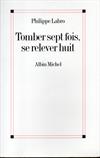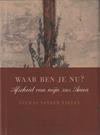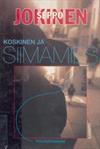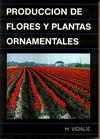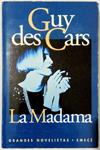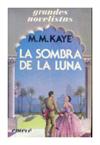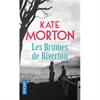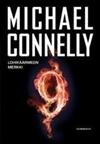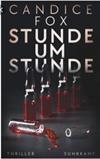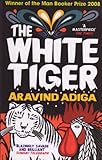
The White Tiger
Registered by bookguide of Wijchen, Gelderland Netherlands on 7/15/2011
 This Book is Currently in the Wild!
This Book is Currently in the Wild!
 This Book is Currently in the Wild!
This Book is Currently in the Wild!
1 journaler for this copy...
Winner of the Man Booker Prize 2008. Donated to the expat club book boxes, but then immediately removed to release in Bruges / Brugge, as I have another copy on my bookshelves which will end up in the ICON boxes.
Edited 24/03/2012 to add:
I have no idea if this book was caught by somebody who hasn't journalled it, but when I released this book, I hadn't read it. Now I have read another copy and here is my (enthusiastic) review:
What a fabulous book! The story is a real page-turner, which I read in two days flat. The author builds up vivid images of Indian society from the point of view of the poor people, the servants and drivers and rickshaw drivers, the people in the villages and those working quietly, away from the extremes of city life. These people are neither the rich and pampered elite of the city, nor the beggars and people living on the street. Aravind Adiga describes them as "half-baked": half-educated, never having enough money to rise above their poverty, and the only way to advance is to bribe officials and policemen. Even the provincial masters, even those who have been educated abroad, have to resort to bowing and scraping to the people in power, and intimidating and threatening those less fortunate. The poor people can only stand up to each other, and within families blackmail and intimidation is a matter of course. Everybody is caught up in the corruption and fighting his own corner, or accepting the status quo.
Balram Hawai (our "hero") eventually has had enough of being subservient and intimidated into submission. In fact, I was wondering at one point if the author was thinking of Balram as Dobby in Harry Potter, as he describes how he felt the need to punish himself for disobedience by pinching the palm of his hand, and Dobby also eventually rises up and stands up for his rights. Balram's solution finally gives him the freedom to be generous, to take charge of his life, and to make life better for other people too, as an employer, an uncle and a benefactor. The author seems to be making the point that corruption is stifling India's opportunity for growth, and the greed of the people at the top is holding back those who are less fortunate - at the risk of fuelling a revolution. However, once in this position of power, Balram also adopts many of the habits of the people he previously despised.
I came to this book with no preconceived ideas. I knew that it had won the Man Booker Prize in 2008 and was on the 1001 list, but neither of these is a guarantee of an enjoyable read. In fact, I tend to be a bit wary of such books, but this one was wonderful. The descriptions were vibrant, but subtle. I loved the description of the fort:
"The long loopholes in its wall turned into lines of burning pink at sunrise and burning gold at sunset; the blue sky shone through the slits in the stone, while the moon shone on the jagged ramparts, and the monkeys ran wild along the walls, shrieking and attacking each other, as if they were the spirits of the dead warriors reincarnated, refighting their final battles."
However, the strength of this novel is in the action and the observations of the main character, some of which are are amusing: "Like eunuchs discussing the Kama Sutra, the voters discuss the elections in Laxmangarh." And finally, I can't resist the quotation perfectly primed for BookCrossers:
"Standing around books, even books in a foreign language, you feel a kind of electricity buzzing up towards you... here what happens is that your brain starts to hum."
Edited 24/03/2012 to add:
I have no idea if this book was caught by somebody who hasn't journalled it, but when I released this book, I hadn't read it. Now I have read another copy and here is my (enthusiastic) review:
What a fabulous book! The story is a real page-turner, which I read in two days flat. The author builds up vivid images of Indian society from the point of view of the poor people, the servants and drivers and rickshaw drivers, the people in the villages and those working quietly, away from the extremes of city life. These people are neither the rich and pampered elite of the city, nor the beggars and people living on the street. Aravind Adiga describes them as "half-baked": half-educated, never having enough money to rise above their poverty, and the only way to advance is to bribe officials and policemen. Even the provincial masters, even those who have been educated abroad, have to resort to bowing and scraping to the people in power, and intimidating and threatening those less fortunate. The poor people can only stand up to each other, and within families blackmail and intimidation is a matter of course. Everybody is caught up in the corruption and fighting his own corner, or accepting the status quo.
Balram Hawai (our "hero") eventually has had enough of being subservient and intimidated into submission. In fact, I was wondering at one point if the author was thinking of Balram as Dobby in Harry Potter, as he describes how he felt the need to punish himself for disobedience by pinching the palm of his hand, and Dobby also eventually rises up and stands up for his rights. Balram's solution finally gives him the freedom to be generous, to take charge of his life, and to make life better for other people too, as an employer, an uncle and a benefactor. The author seems to be making the point that corruption is stifling India's opportunity for growth, and the greed of the people at the top is holding back those who are less fortunate - at the risk of fuelling a revolution. However, once in this position of power, Balram also adopts many of the habits of the people he previously despised.
I came to this book with no preconceived ideas. I knew that it had won the Man Booker Prize in 2008 and was on the 1001 list, but neither of these is a guarantee of an enjoyable read. In fact, I tend to be a bit wary of such books, but this one was wonderful. The descriptions were vibrant, but subtle. I loved the description of the fort:
"The long loopholes in its wall turned into lines of burning pink at sunrise and burning gold at sunset; the blue sky shone through the slits in the stone, while the moon shone on the jagged ramparts, and the monkeys ran wild along the walls, shrieking and attacking each other, as if they were the spirits of the dead warriors reincarnated, refighting their final battles."
However, the strength of this novel is in the action and the observations of the main character, some of which are are amusing: "Like eunuchs discussing the Kama Sutra, the voters discuss the elections in Laxmangarh." And finally, I can't resist the quotation perfectly primed for BookCrossers:
"Standing around books, even books in a foreign language, you feel a kind of electricity buzzing up towards you... here what happens is that your brain starts to hum."
Journal Entry 2 by bookguide at -- ergens / quelque part / somewhere in Brugge, West-Vlaanderen / Flandre Occidentale Belgium on Friday, July 15, 2011
Released 12 yrs ago (7/16/2011 UTC) at -- ergens / quelque part / somewhere in Brugge, West-Vlaanderen / Flandre Occidentale Belgium
WILD RELEASE NOTES:
This book has been released as part of the following BookCrossing challenges:
- The Ultimate Challenge - read and release books, with extra points for a monthly theme
- Reduce Mount TBR (To Be Read) - read and release books on the TBR list since before June 2010. My reading goal is 75 books.
- Pages Read Challenge - read a self-set target number of pages in 2011. My goal is 25,000.
- 1001 Books You Must Read Before You Die Challenge
- The Ultimate Challenge - read and release books, with extra points for a monthly theme
- Reduce Mount TBR (To Be Read) - read and release books on the TBR list since before June 2010. My reading goal is 75 books.
- Pages Read Challenge - read a self-set target number of pages in 2011. My goal is 25,000.
- 1001 Books You Must Read Before You Die Challenge
